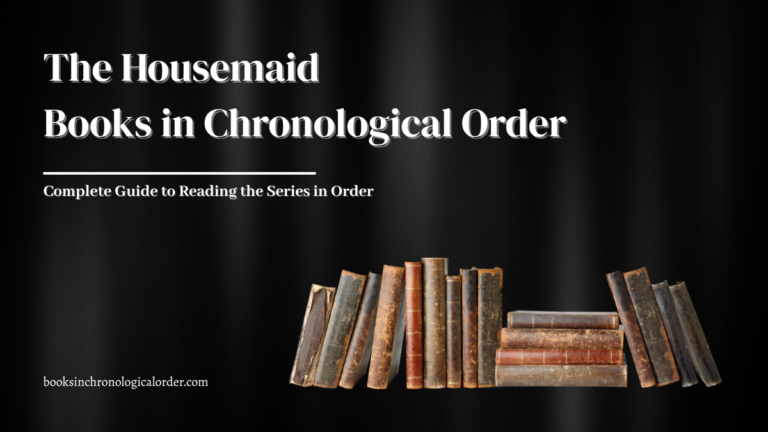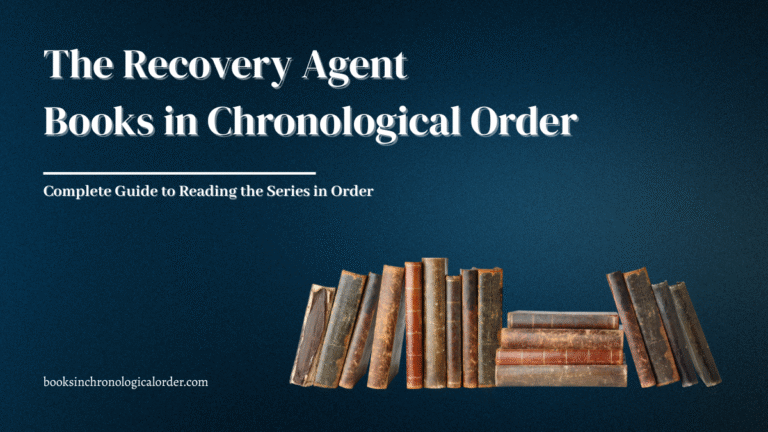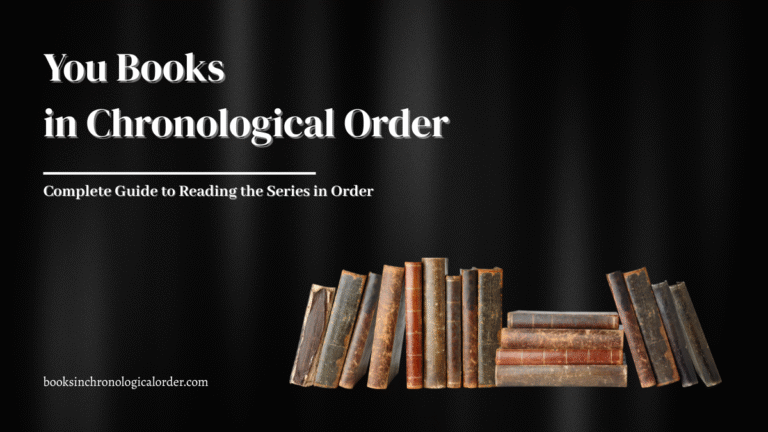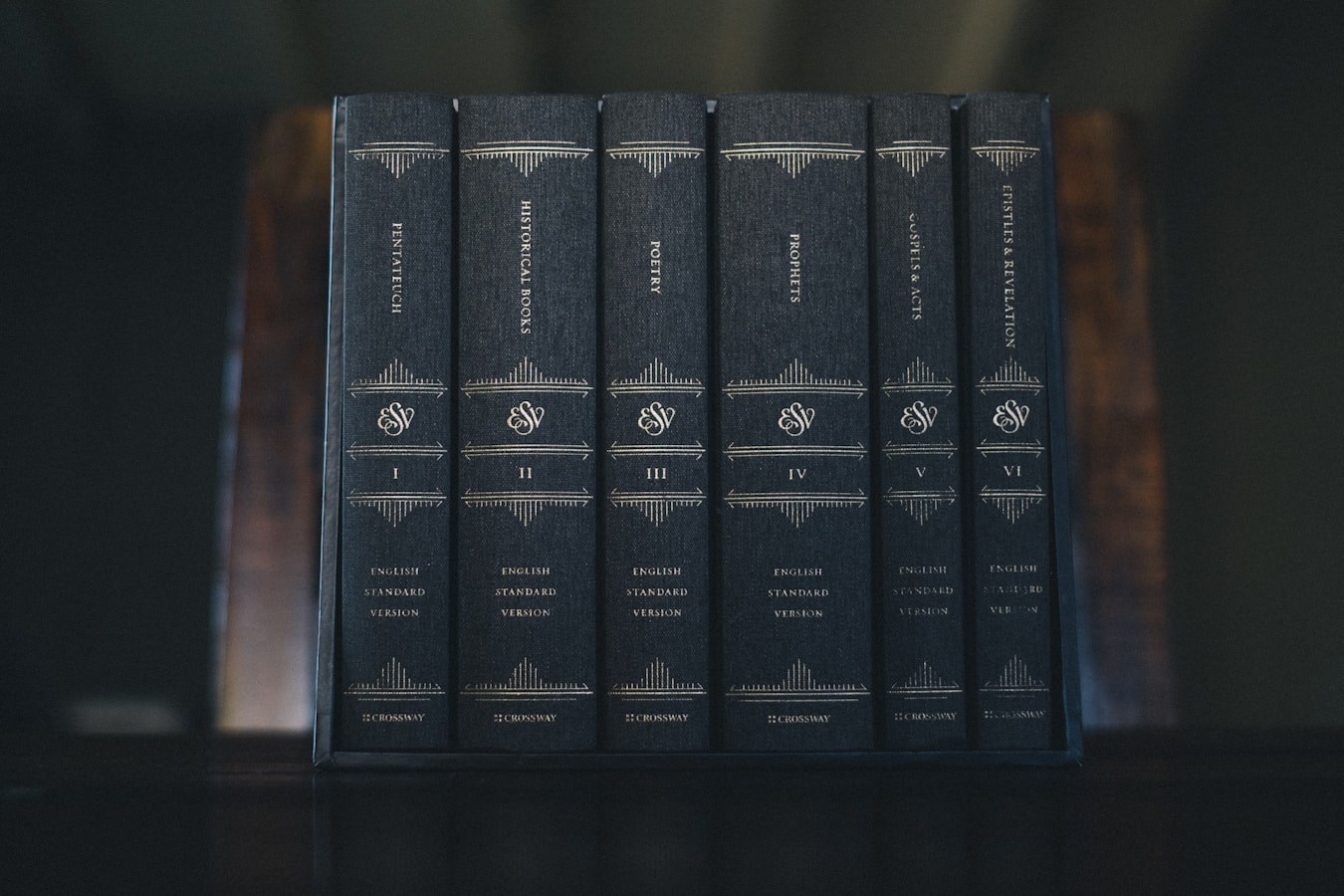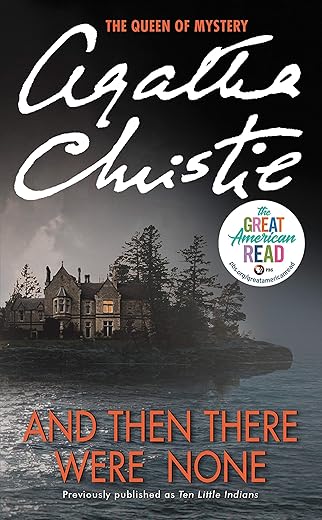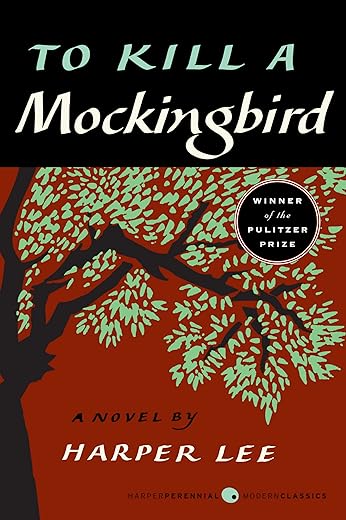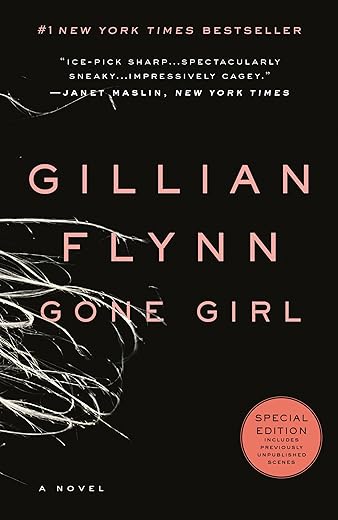Read every series in the right order
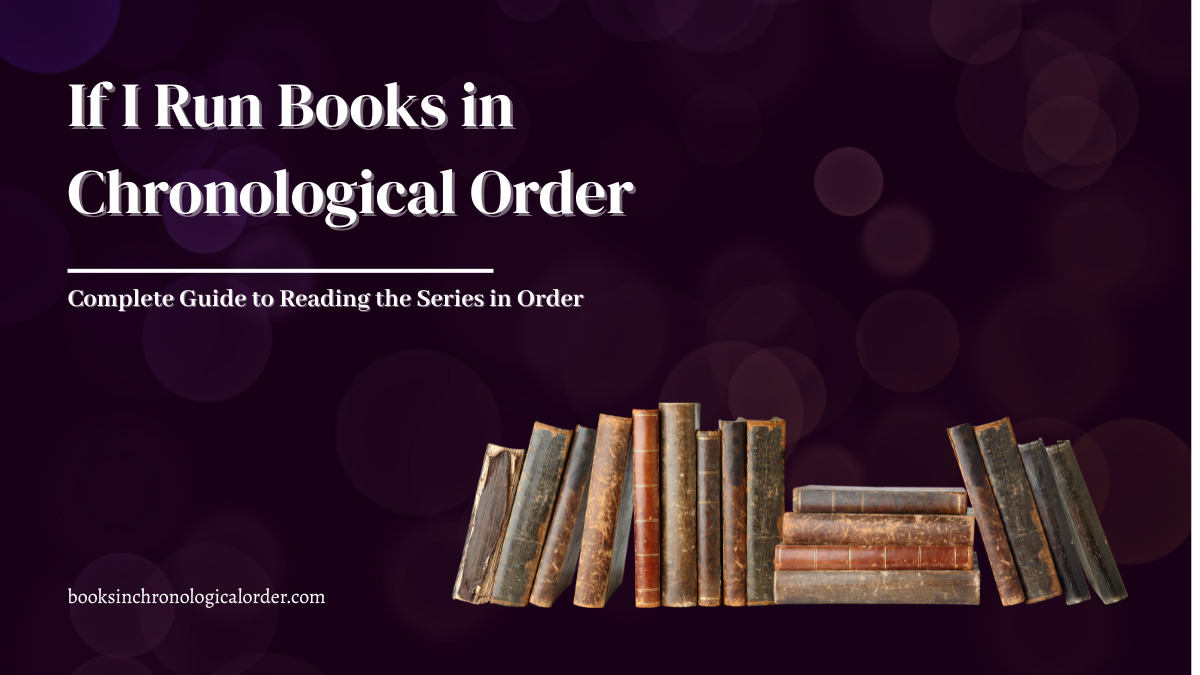
If I Run Books in Chronological Order – Complete Reading Guide




Table of Contents
Quick Answer (TL;DR)
Read If I Run → If I’m Found → If I Live. That’s both the publication and chronological order. The trilogy follows Casey Cox, a woman framed for murder, and Dylan Roberts, the investigator hired to bring her in—until he starts to suspect the truth. Expect high-stakes Christian suspense, dual POV, cliffhangers, and a through-line of faith, trauma, justice, and redemption. When you finish, watch the Lifetime Original Movie (2025) adaptation of If I Run for a screen take on book one.
Introduction
At Books in Chronological Order, we specialize in guides that don’t just tell you what to read next—they explain why that order matters. Terri Blackstock’s If I Run trilogy is the kind of edge-of-your-seat suspense that’s best experienced straight through: book one’s inciting crime and conspiracy threads flower across book two, and land with full emotional and spiritual force in book three.
If you love clean-but-tense thrillers, a strong yet vulnerable heroine, a war-scarred investigator wrestling with PTSD, and moral stakes that never feel preachy, this series is your weekend read—topped off with an on-screen adaptation to compare.
Quick Facts
| Field | Details |
|---|---|
| Series | If I Run (Trilogy) |
| Author | Terri Blackstock |
| Books | If I Run (1), If I’m Found (2), If I Live (3) |
| Typical Length | ~320–360 pages each (paperback editions vary by publisher/printing) |
| Average Read Time | 8–10 hours per novel at ~250 wpm (25–30 hours for the trilogy) |
| Reading Difficulty | Easy–Moderate (accessible prose, fast pacing; dual POV) |
| Primary Genres | Mystery & Thriller, Christian Suspense, Romantic Suspense (slow-burn) |
| Content Warnings | Murder framing, police corruption, stalking, abduction peril, PTSD, faith discussions; non-graphic violence, no explicit sex |
| Media Adaptations | Lifetime Original Movie (2025) — If I Run (film adaptation of Book 1) |
| Ideal Age Range | Adult / Upper YA+ (mature teens OK with crime themes; great for book clubs that enjoy faith-forward thrillers) |
About the If I Run Book Series
Terri Blackstock’s If I Run series blends a classic fugitive thriller with a redemptive arc. Casey Cox finds herself framed for the murder of a close friend. With her DNA all over the scene and a past that makes trusting law enforcement impossible, she runs. Dylan Roberts, a former military investigator carrying PTSD, is hired to find her—then begins to suspect she may be innocent. As the pursuit deepens, the books uncover a broader conspiracy involving corrupt officials, and they spotlight small, selfless choices Casey makes to help others even while she’s on the run.
Thematically, this trilogy explores:
- Truth vs. narrative (how evidence can be bent; how character reveals itself under pressure).
- Trauma and healing (Casey’s childhood scars; Dylan’s wartime wounds).
- Faith without easy answers (the series is faith-forward, never hectoring; characters wrestle, doubt, and grow).
- Moral courage (doing the right thing even when it complicates survival).
Pacing is propulsive—short chapters, rising peril, cliffhanger beats that flow directly into the next book—so most readers barrel through in the recommended order.
If I Run Books at a Glance
| # | Title | Amazon |
|---|---|---|
| 1 | If I Run | Buy On Amazon |
| 2 | If I’m Found | Buy On Amazon |
| 3 | If I Live | Buy On Amazon |
If I Run Books in Chronological Order
1) If I Run
Set-up & Stakes: When Casey Cox discovers her friend brutally murdered, she knows two things: someone set her up, and the people who should protect her can’t be trusted. With her DNA saturating the scene, the narrative is already against her. She flees, leaving behind not just a place but a past that taught her secrecy is survival.
The Pursuer: Enter Dylan Roberts, a war-weary ex-investigator whose competence is shadowed by PTSD. The assignment appears clean: retrieve the suspect. Yet Casey’s profile doesn’t match the crime. Her digital footprints are savvy; her choices help others in danger. The case pries open Dylan’s instincts—and his compassion.
What the book does brilliantly:
- Dual POV lets you watch the hunter and the hunted change one another.
- Ethical tension: Is running cowardice—or wisdom? How do you prove innocence when the story is already written?
- Subtext of faith: Characters do not sermonize; they struggle toward what’s right.
Best for readers who enjoy: Cat-and-mouse thrillers with heart; damaged-but-decent leads; the first act of a larger conspiracy.
2) If I’m Found
Wider Lens, Deeper Risks: Casey is still dodging capture while gathering proof of who really killed her friend—and why. The conspiracy shows more of its teeth, and Casey’s decisions become a quiet ledger of character: she cannot walk past suffering, even if stepping in risks exposure.
Dylan’s Arc: Dylan’s private investigation evolves into covert alignment with Casey. Trust is still provisional (it has to be), but he’s now fighting a two-front war: protecting Casey while navigating institutional rot and his own scars.
Why book two matters:
- It proves Casey’s courage isn’t theoretical—she takes risks for strangers.
- It complicates Dylan’s duty: how do you serve justice when your chain of command is compromised?
- It sets the emotional fuse for book three.
Expect: Gaslighting, intimidation, systemic corruption cues; a few righteous wins; more cliffhangers.
3) If I Live
Endgame: The net tightens. Casey is out of places to hide; the antagonists are closer to unmasking—and silencing—her. Evidence matters, but timing and who controls the narrative matter more. Casey and Dylan must go from reactive to decisive, flipping the script before the story of Casey Cox is permanently sealed by those who wrote the first draft.
What lands with power:
- Character payoff: Casey’s empathy and ingenuity; Dylan’s steadiness under fire.
- Spiritual arc: Faith as lifeline in ambiguity; the courage to tell the truth even at a cost.
- The thriller promise: Momentum without gratuitous ugliness; danger that feels earned.
Final note: The conclusion satisfies on plot and theme; the series closes the circle it opened on page one—without betraying its tone.
Series Timeline & Character Development
Casey Cox
- Book 1: Survival mode. High situational awareness; deep mistrust of authorities with reason. Beneath the fugitive exterior is a helper’s heart—she notices the vulnerable and intervenes even when she shouldn’t.
- Book 2: From surviving to witnessing—she gathers proof and chooses to protect others under threat. Trauma responses remain (hypervigilance, guardedness), but she becomes more purpose-driven.
- Book 3: From witness to whistleblower—Casey owns the narrative risk and takes the offensive. She wrestles with forgiveness and the shape of justice, moving toward hope with eyes open.
Dylan Roberts
- Book 1: Competent professional carrying PTSD and moral fatigue. The case wakes up his discernment—and empathy.
- Book 2: Internal conflict intensifies: duty vs. integrity. He becomes strategic in choosing who to trust and how to proceed. His faith and discipline keep the floor from falling out.
- Book 3: Fully aligned with justice over optics. Dylan is anchored—still wounded, not defined by wounds. A stabilizing presence who helps Casey shift from prey to truth-teller.
Antagonistic Forces
- From a single murder to a layered conspiracy, the series escalates credibly: people protecting their power and stories, not moustache-twirling villains. The danger is personal and systemic.
Novels Sorted in Order of In-Universe Events
- If I Run
- If I’m Found
- If I Live
(Same as publication order.)
Novels Sorted in Order of Publication
- If I Run
- If I’m Found
- If I Live
Companion Works
Looking to extend the experience?
- Audiobooks: Excellent for dual-POV thrillers; performance helps distinguish internal states.
- Group Guides: Many book clubs and church groups build questions around truth vs. perception, trauma care, and justice. Try prompts like:
- Where does courage show in small decisions?
- What’s the healthiest way to seek justice when institutions fail?
- How do Casey’s and Dylan’s traumas shape their ethics?
- Author Backlist: If you want more Terri Blackstock after this trilogy, explore her other Christian suspense series for similar pacing and themes.
Editions & Formats (hardcover, collector, audio)
- Paperback: Most common, budget-friendly.
- Hardcover: Library-durable; good for gifting.
- Kindle / eBook: Great for travel; built-in highlighting for discussion.
- Audiobook: Ideal for commuters or joint “listen & discuss” experiences.
Collector note: Some trade paperbacks include author Q&A or discussion questions; check product descriptions before you buy.
Why Read If I Run Books in Chronological Order?
Because If I Run Books in Chronological Order mirrors the unfolding of the truth. Each book resolves immediate peril but withholds the complete picture until the end. Reading out of order will blunt both the thriller mechanics and the emotional payoff.
- Plot logic: Clues, emails, and side characters ladder up book to book.
- Character growth: Casey’s trust and Dylan’s integrity are serial arcs, not episodic.
- Thematic resonance: Faith and justice threads culminate in book three.
Short on time? Read book one and the final third of book three only if you must—but you’ll miss the ethical spine and relationship nuance that book two supplies.
Author Spotlight: Terri Blackstock
Terri Blackstock is a New York Times and USA TODAY bestselling author with 7+ million copies sold across a decades-long career. After early success in general market fiction, she pivoted in the 1990s to write faith-inflected suspense—fast, tightly plotted novels that take evil seriously without reveling in it, and that offer hope without sentimentality.
Raised in a military family, Blackstock lived all over the U.S. and abroad, an experience that informs her sensitivity to people in transition and crisis. She’s appeared on national TV and radio to discuss her work and the intersection of faith and crime fiction. The If I Run trilogy distills many of her strengths: propulsive stakes, empathetic leads, and ethical clarity earned the hard way.
Media Adaptations (films, TV, radio)
- If I Run — Lifetime Original Movie (2025)
- Cast: Kat Graham, Evan Roderick, Zak Santiago
- Director: Michael M. Scott
- What to expect: The film adapts the first novel’s core premise—frame-up, flight, and the early stages of Casey/Dylan’s intertwining paths. Screen versions typically compress timelines and side plots; use the movie as a gateway, then read the full trilogy for the complete conspiracy arc and spiritual journey.
Watch trailer :
FAQs
Is the trilogy “clean”?
Yes—no explicit sex; violence is present but non-graphic. Themes include murder, corruption, and trauma, handled with restraint.
Do the books work for teens?
Mature upper YA readers who enjoy thrillers can handle the content. Adults will get the most from the faith and justice layers.
Is there a romance?
There’s a slow-burn connection built on trust and shared risk. The series prioritizes suspense and ethics over swoon
Do I need to be religious to enjoy it?
No. The faith elements inform character choices and hope; they aren’t used as lectures. If you like clean, value-driven thrillers, it’s a fit.
Audiobook or print?
Both work. Audio heightens tension and differentiates POVs; print/ebook makes it easy to flag clues.
Box set available?
Retailers often bundle the trilogy in digital or paperback sets; check regional availability.
Final Thoughts
If I Run Books in Chronological Order is the rare thriller sequence that fires on all cylinders—page-turning momentum, credible peril, compassionate protagonists, and redemptive themes. Read them straight through in order for maximum plot coherence and emotional lift. Then, if you’re curious how the beats translate to screen, sample the Lifetime adaptation of book one.
Pack snacks. Charge the e-reader. You’ll fly through these.




